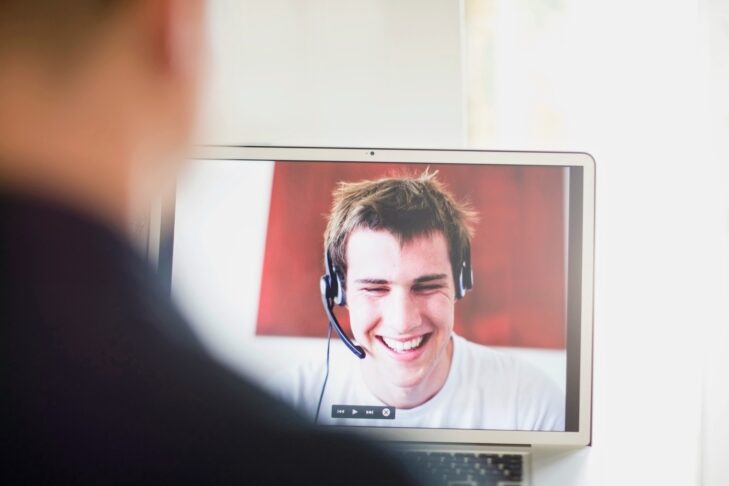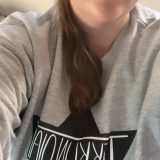The last Monday that Temple Israel’s teen program (The Tent) met in person was the Purim carnival. The COVID-19 crisis was in the background of my mind as we made hamantaschen, played trivia and listened to music together. The young people seemed unfazed, while the adults were sort of whispering to each other, wondering if we should be worried. We didn’t know our worlds were about to get turned upside down, none of us in that room, as we danced and laughed and made a big, wonderful mess.
Just a week later, we got together on Zoom. Over 55 kids and about six adults, teachers and administrators spent time together. There were costumes, an appearance from our new Uncle Oireh (the youth group advisor in a suit), some giggles and a good, long check-in. Since then, our classes have continued on Zoom—we’ve met twice, and while I was definitely nervous about how we’d connect across distance, I have been blown away by these young people.
My poetry class, a small but mighty group of four students, started with some COVID-related poetry. We read it, we dissected it and we wrote letters to the virus. The four of them are so present, so insightful, so quietly centered and kind to one another. They are creating and consuming art in a moment when it feels so tenuous to be generating content. During our first week check-in, I asked what they had been doing. Between the four of them, they’d applied to three different fellowships, learned Morse code and started writing a novel. The kids are using their time wisely.
My racial identity class is larger, louder and older. These are kids I’ve known for four or five years. They are thinking about canceled proms and graduations, imagining a world where they don’t spend their final months of high school with their closest friends. And yet, they are practically begging to dive into conversations around racial identity, citing a lack of meaningful, transparent discussions from their schools and communities otherwise. They are sharing deeply of themselves, making vulnerable their shortcomings and asking questions that, in the attempt to answer, may help us all get free someday.
So, yes, some days in the time of physical distancing are hard. They feel heavy and achy and lonely, even with others at home. And on those heavy days, seeing these young people and their optimism and their willingness to try on new ideas in the midst of a global pandemic is what makes the next day lighter. If we listen to them, if we look to them for their wisdom, I think we’ll come out of this not whole, but a little less broken.
This post has been contributed by a third party. The opinions, facts and any media content are presented solely by the author, and JewishBoston assumes no responsibility for them. Want to add your voice to the conversation? Publish your own post here. MORE



